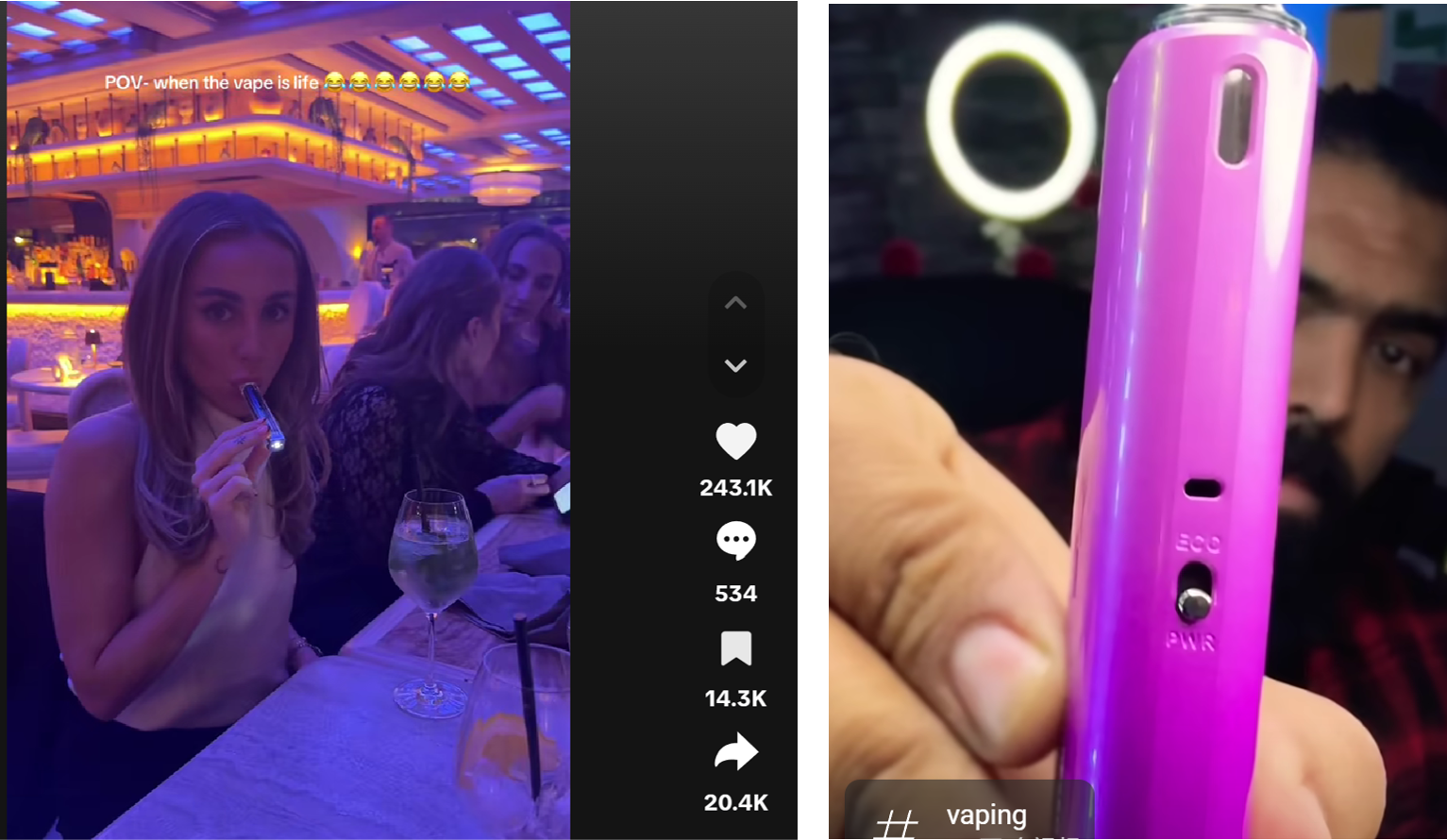Background
Vaping has become a significant public health issue in Australia, particularly among young people. While initially marketed as a smoking cessation tool, e-cigarettes have since evolved into a digital lifestyle product. Nearly half of Australians aged 18 to 24 have tried vaping, and platforms like TikTok and Instagram are filled with videos and images portraying vaping as aesthetic, fun, and socially accepted. Although new legislation coming into effect in July 2024 will make all vape products prescription-only, social media continues to visually glamorize vaping, weakening the impact of regulatory action. At the same time, research links vaping to increased levels of anxiety, depression, and low wellbeing among teenagers, suggesting a broader mental and social health concern.
Topic and Angle
This commentary explores the intersection of social media influence and public policy in shaping vaping culture among young Australians. The angle highlights how visual and influencer-based content on platforms like TikTok promotes vaping through appealing aesthetics and humors — often without proper regulation or health warnings. The argument is that Australia’s vaping regulation has focused too narrowly on physical product control, while overlooking the digital and cultural environments where young people are most exposed to vaping narratives.
Genre
The proposed article will be a news commentary, combining evidence-based analysis with a clearly stated opinion. Unlike a feature article, which aims to narrate an event or trend in depth, a news commentary takes a critical stance on a current issue — in this case, the regulatory and cultural gap between youth vaping behaviors and Australia’s policy response. It will be informed by academic literature, government reports, media coverage, and expert interviews.
Publisher
This commentary is intended for The Conversation, a trusted academic-public platform known for publishing expert-led journalism. With a wide readership across education, health, and policymaking sectors, The Conversation provides the ideal environment to raise awareness and provoke discussion around youth vaping and online influence. Its format allows for embedded multimedia and hyperlinks, enabling accessible, visually enhanced storytelling.
Target Audience
The article targets Australian readers aged 18 to 35, especially social media users and university students. It also speaks to public health professionals, educators, and policymakers who are actively engaged in addressing youth behavioral issues. By presenting research and platform analysis in clear language, the article will reach a broad, informed audience concerned with both digital culture and health policy.
Sources
Sources for the article will include:
- Official data from the Australian Institute of Health and Welfare (AIHW) and the Therapeutic Goods Administration (TGA)
- Academic research, such as the Instagram vape content study by Jancey et al. (2024) and the BMJ article by Jongenelis et al. (2024) on language framing
- News reports from ABC News on youth mental health and illegal vape seizures
- Commentary from Dr Michelle Jongenelis (University of Melbourne) and Dr Becky Freeman (University of Sydney)
- Sample content from TikTok and YouTube Shorts, including influencer videos using vape products

Media Elements
To strengthen the web-based storytelling, the article will include:
- A composite image of screenshots from TikTok and YouTube Shorts, showing influencers casually using vape products.
- An interactive store locator map (from VapeLabs) to visually demonstrate the geographic accessibility of vape products in Sydney.
- Embedded hyperlinks to legislation, expert profiles, government data, and peer-reviewed research.
- Visual content will be used under fair use or sourced from Creative Commons, with accurate captions and attribution.




Be the first to comment